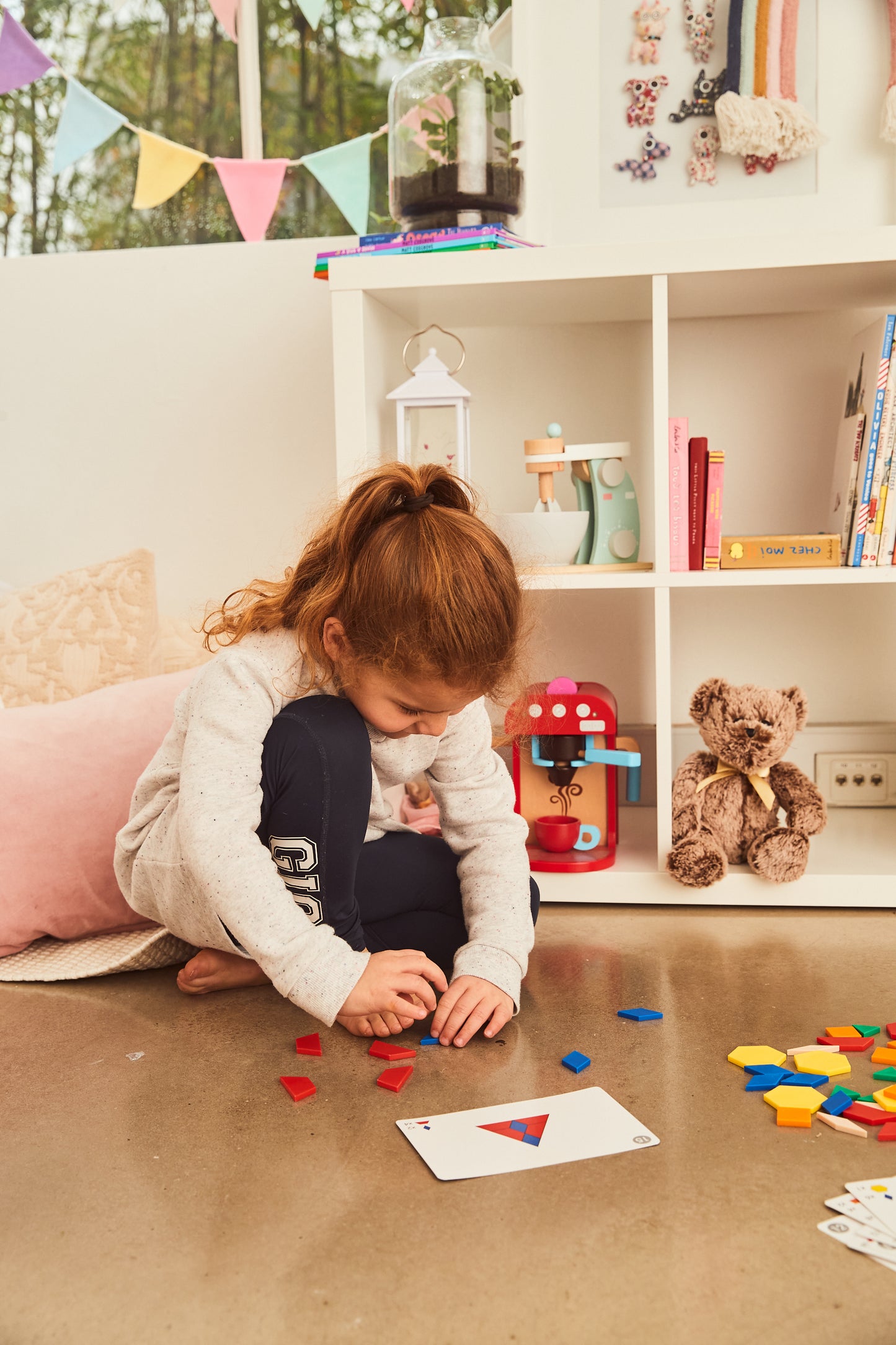
We’re always looking for engaging ways to support our young children’s development. When it comes to early mathematics, play-based learning offers a fun and effective approach. At Edx Education, we believe that incorporating educational toys and activities into your child’s playtime can lay a strong foundation for their mathematical understanding. Today, we’ll explore how play-based activities can make learning maths exciting and meaningful for children from birth to age six.
The Power of Play in Learning Maths
Play is more than just fun—it’s a powerful tool for learning. For young children, play-based activities can make abstract mathematical concepts like shapes, numbers, and patterns more tangible and understandable. By engaging with educational toys and games, children develop problem-solving skills and critical thinking, all while having a blast.
Engaging with Shapes: Building Blocks of Understanding
One of the simplest ways to introduce mathematical concepts is through shapes. Edx Education’s Pattern Blocks are a fantastic tool for this purpose. These vibrant, pebble-shaped counters come in various sizes and colours, allowing children to explore different shapes and understand how they fit together. By stacking, sorting, and arranging Pattern Blocks children can visually grasp geometric concepts and develop spatial awareness.
Numbers and Counting: From Basics to Beyond
Counting is a fundamental mathematical skill that forms the basis for more complex concepts later on. Start with basic counting using tools like Edx Education’s Themed Counter Jars. These jars come filled with colourful counters that are perfect for hands-on counting activities. Children can practice one-to-one correspondence by placing each counter into the jar and counting aloud. This activity not only reinforces counting skills but also improves fine motor skills.
Math cubes and 1cm interlocking cubes are also excellent resources for teaching numbers. Children can build and count using these cubes, which help them visualise quantities and understand addition and subtraction in a concrete way. For example, creating towers with these cubes can help children see how different numbers combine to make new quantities.
Patterns and Sorting: Discovering Mathematical Relationships
Patterns and sorting activities help children recognize and predict sequences, which are essential skills in mathematics. Edx Education’s Transparent Numbers are perfect for creating and exploring patterns. These colourful numbers allow children to experiment with different arrangements and sequences, fostering an understanding of numerical patterns.
Sorting activities with tools like Rainbow Pebbles® also enhance pattern recognition. Children can sort pebbles by colour, size, or shape, learning to classify and organize objects. This process not only builds mathematical skills but also supports cognitive development by encouraging children to identify and describe characteristics.
The Importance of Early Mathematical Skills
Early exposure to mathematical concepts through play can significantly impact a child’s future learning. When children engage with numbers, shapes, and patterns in a playful and interactive way, they develop a strong mathematical foundation. This early understanding helps with problem-solving, critical thinking, and even language development.
Moreover, play-based learning aligns with children’s natural curiosity and desire for exploration. By integrating educational toys and activities into their playtime, you make learning an enjoyable and meaningful experience. It’s also a wonderful way to bond with your child, as you can participate in these activities together and celebrate their achievements.
Resources and Support from Edx Education
At Edx Education, we’re committed to supporting parents and caregivers with high-quality educational resources and downloadable resources. Our range of toys, including Counter Jars, Math Cubes, 1cm Interlocking Cubes, Rainbow Pebbles®, and Transparent Numbers, are designed to make maths engaging and accessible for young children. We also offer downloadable resources and activities through our Play, Learn & Create podcast, where we share ideas and tips for incorporating play-based learning into everyday life.
By choosing play-based learning, you’re giving your child the gift of a strong mathematical foundation that will serve them well throughout their education. So dive into the world of educational toys, explore the joy of counting, sorting, and patterning, and watch as your child’s love for learning grows!
For more ideas and inspiration, tune in to our Play, Learn & Create podcast and explore our resources at Edx Education. Together, we can make early mathematics a fun and rewarding adventure for every child.
